War movies have always had a way of capturing the raw emotions and intense realities that come with conflict, mixing action with deep personal stories. From dramatic battle scenes to the quiet moments that speak volumes, these films often give us more than just a glimpse into the chaos of war—they show us the courage, sacrifice, and struggles of those involved. Some of the greatest war movies stand out not only for their gripping plotlines but also for how they manage to humanize soldiers and civilians alike, reminding us of the toll that war takes on everyone involved.
What makes these films resonate so strongly is their ability to bring history to life in such a compelling way. They don’t just recount events, they immerse us in them, making us feel as though we are right there, experiencing the battle, the loss, and the triumphs alongside the characters. From epic tales of heroism to sobering portrayals of the emotional and psychological impact of warfare, these movies leave a lasting impression and continue to be celebrated for their powerful storytelling and unforgettable performances.
Saving Private Ryan
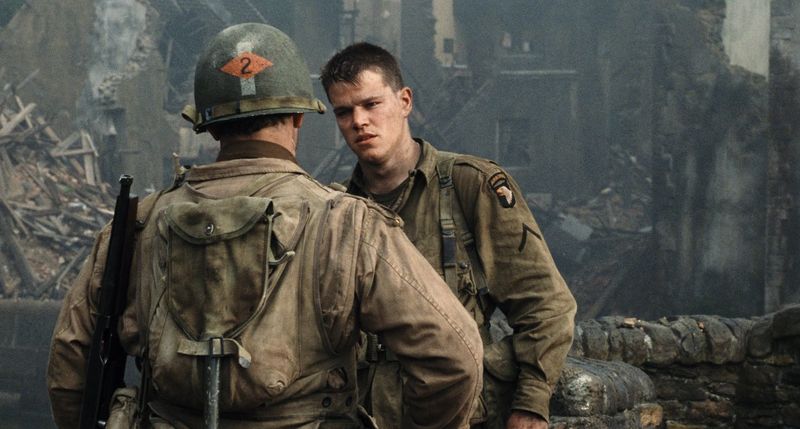
Steven Spielberg’s ‘Saving Private Ryan’ is renowned for its realistic portrayal of World War II’s D-Day invasion. The opening sequence, capturing the Normandy beach landings, is a masterclass in filmmaking. Viewers are plunged into the chaos of war, feeling each bullet and explosion.
The film follows Captain Miller (Tom Hanks) and his squad as they search for Private Ryan, navigating the complexities and moral quandaries of war. This journey not only highlights the brutality of combat but also the camaraderie and sacrifice among soldiers. A must-watch for its immersive and emotional storytelling.
Apocalypse Now
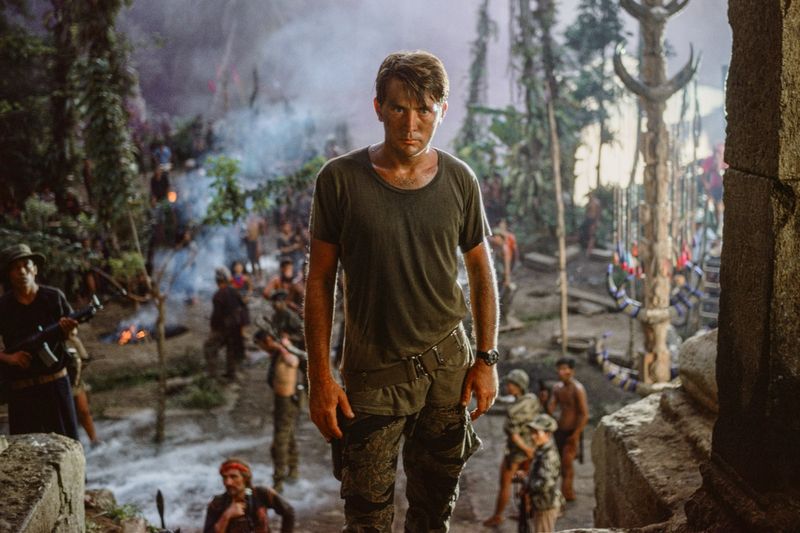
‘Apocalypse Now’, directed by Francis Ford Coppola, is a hallucinatory dive into the Vietnam War’s heart of darkness. The film explores the psychological impacts of war as Captain Willard (Martin Sheen) undertakes a harrowing mission to find and terminate Colonel Kurtz (Marlon Brando).
As Willard journeys deeper into the jungle, reality blurs with madness, reflecting the war’s chaotic nature. Coppola’s masterpiece is noted for its stunning visuals and haunting soundtrack. It remains a poignant reflection on the futility and destructiveness of war, leaving a lasting impression on audiences.
Full Metal Jacket
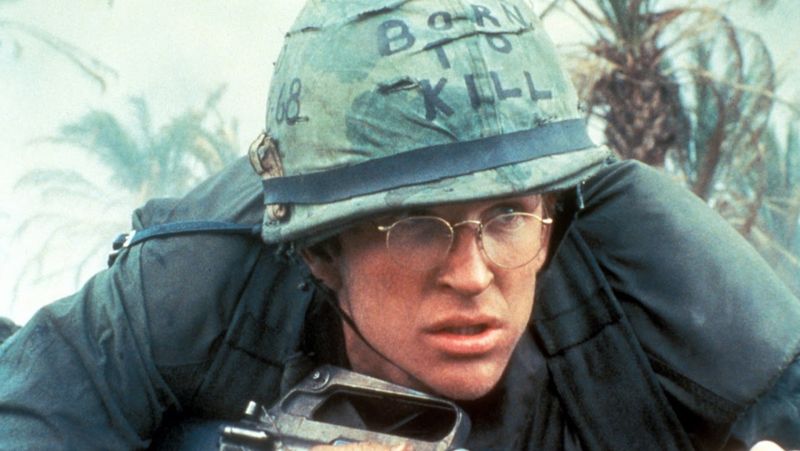
Stanley Kubrick’s ‘Full Metal Jacket’ presents a stark two-part narrative of the Vietnam War. The first half focuses on boot camp, where recruits, led by the intense Gunnery Sergeant Hartman (R. Lee Ermey), endure harsh training.
This segment reveals the dehumanizing effects of military indoctrination. The second half shifts to Vietnam, following Joker (Matthew Modine) as he experiences the combat’s grim realities. Kubrick’s direction provides a chilling look at war’s duality, highlighting both the psychological transformation of soldiers and the brutal nature of combat.
Platoon
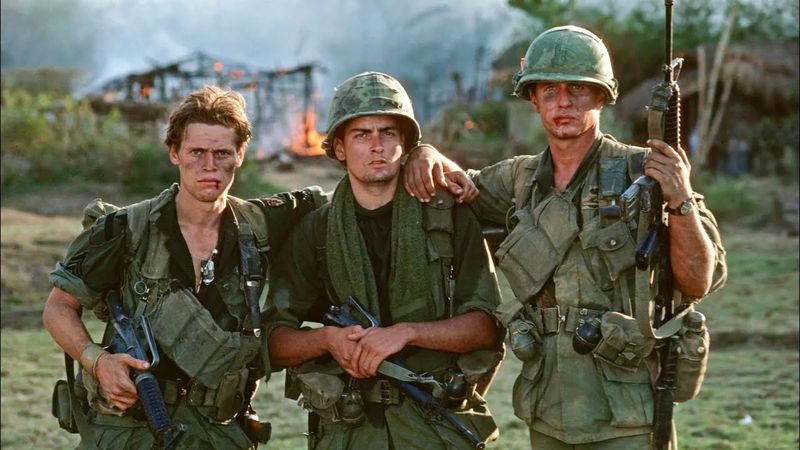
Oliver Stone’s ‘Platoon’ draws from his own Vietnam War experiences, delivering an authentic and intense portrayal of the conflict. The film follows Chris Taylor (Charlie Sheen), a young, naïve recruit who faces the horrors of war and internal conflict within his platoon.
As Taylor navigates the moral ambiguities and brutality of combat, he confronts the complex dynamics between his sergeants, embodying the good-versus-evil struggle. ‘Platoon’ is lauded for its raw depiction of war’s impact on soldiers, offering a powerful commentary on the Vietnam War’s senselessness.
Dunkirk
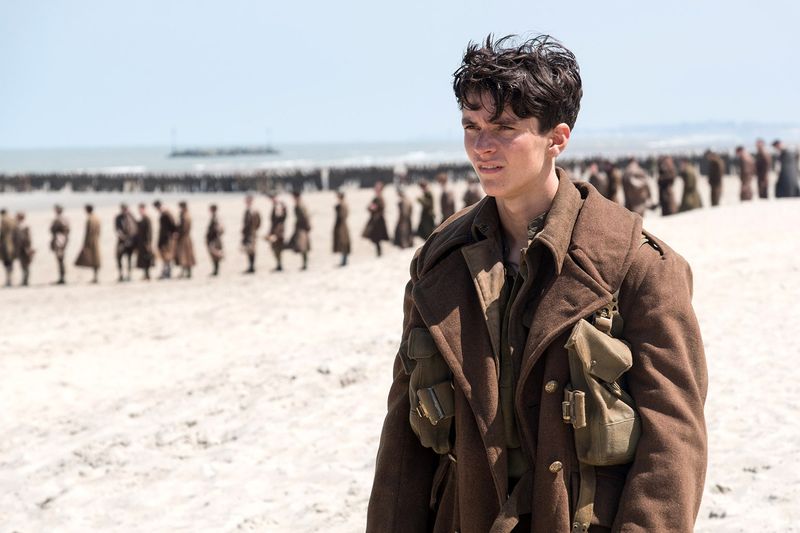
‘Dunkirk’, directed by Christopher Nolan, immerses viewers in the harrowing evacuation of British forces from France during World War II. Through multiple perspectives—land, sea, and air—the film captures the intensity and desperation of the Dunkirk evacuation.
Nolan’s innovative storytelling keeps audiences on the edge, highlighting the themes of survival and heroism. With minimal dialogue, the movie relies on powerful visuals and a gripping score to convey the urgency and sacrifice. ‘Dunkirk’ stands out for its immersive experience, offering a fresh take on war cinema.
Black Hawk Down
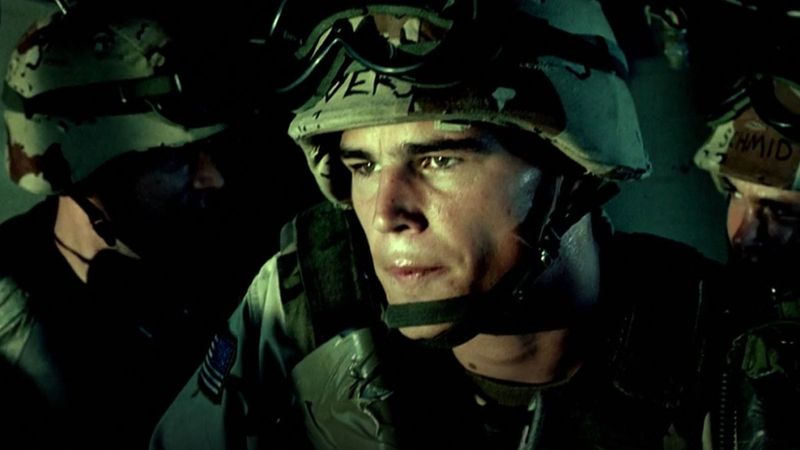
Ridley Scott’s ‘Black Hawk Down’ is a gripping depiction of the 1993 Battle of Mogadishu. The film showcases the intense urban combat faced by U.S. forces in Somalia, focusing on the downing of two Black Hawk helicopters.
Amidst the chaos, soldiers strive to rescue their comrades, highlighting their bravery and the mission’s complexity. Known for its realistic combat sequences and ensemble cast, the film pulls no punches in its portrayal of modern warfare’s challenges. It’s a visceral account of courage under fire and the unpredictability of combat.
The Thin Red Line
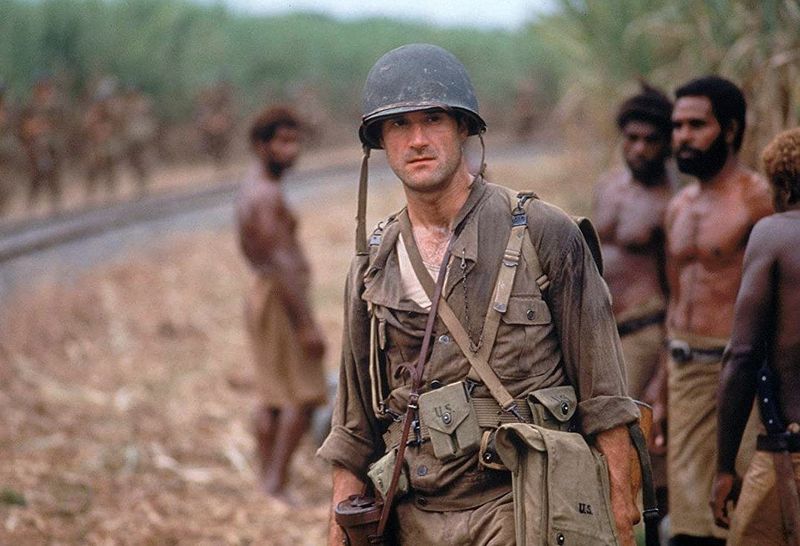
Terrence Malick’s ‘The Thin Red Line’ is a contemplative examination of the Guadalcanal Campaign during World War II. The film delves into the minds of soldiers, exploring their fears and reflections amid the chaos of battle.
With stunning cinematography, the narrative contrasts the brutality of war with the beauty of nature. Malick’s philosophical approach provides a unique perspective on the human condition and the impact of conflict. This film stands out for its meditative tone, offering a profound exploration of war’s existential questions.
1917

Sam Mendes’ ‘1917’ is an immersive World War I epic, filmed to appear as one continuous shot. This ambitious technique thrusts viewers into the soldiers’ journey, as Lance Corporals Schofield and Blake race against time.
Entrusted with delivering a message to prevent a doomed attack, the soldiers navigate the dangerous No Man’s Land. Their journey is fraught with peril, showcasing the futility and horror of war. Mendes’ direction and Roger Deakins’ cinematography create a gripping and visually striking experience, making ‘1917’ a standout in war cinema.
Hacksaw Ridge
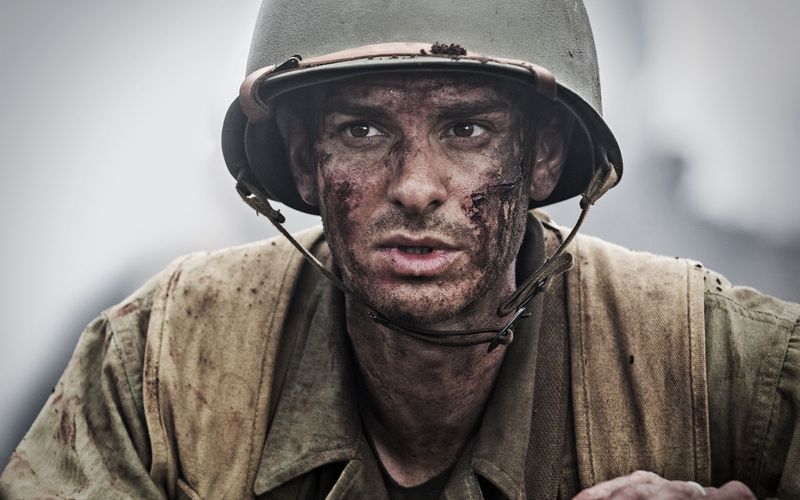
Directed by Mel Gibson, ‘Hacksaw Ridge’ tells the true story of Desmond Doss (Andrew Garfield), a conscientious objector who served as a medic during World War II. Doss’s unwavering faith and courage led him to save dozens of soldiers during the Battle of Okinawa, without ever carrying a weapon.
The film combines intense battle sequences with a compelling personal story of heroism and conviction. ‘Hacksaw Ridge’ stands as an inspiring testament to individual courage and the power of non-violence amidst the ravages of war.
Letters from Iwo Jima
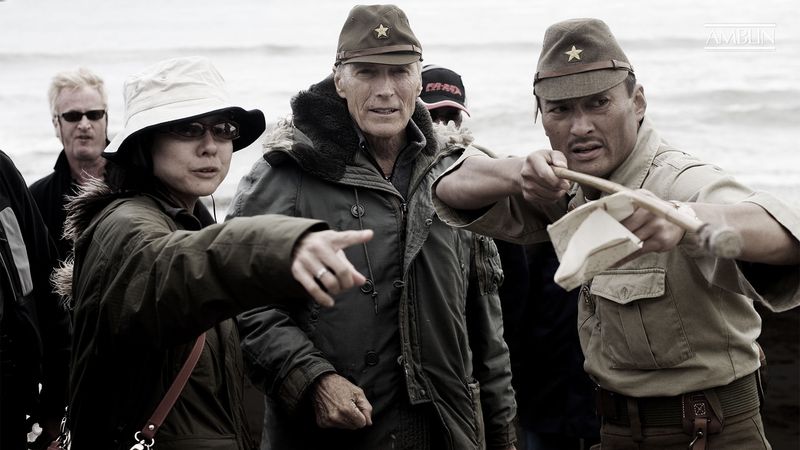
Clint Eastwood’s ‘Letters from Iwo Jima’ provides a poignant perspective on the Battle of Iwo Jima, told from the Japanese viewpoint. The film humanizes the enemy, showcasing the soldiers’ fears, hopes, and sense of duty.
Through intimate storytelling and powerful performances, it reveals the shared humanity amid conflict. This narrative approach offers a fresh look at a well-known historical event, challenging viewers to empathize with both sides. ‘Letters from Iwo Jima’ is acclaimed for its emotional depth and unique perspective on war’s impact.
Paths of Glory
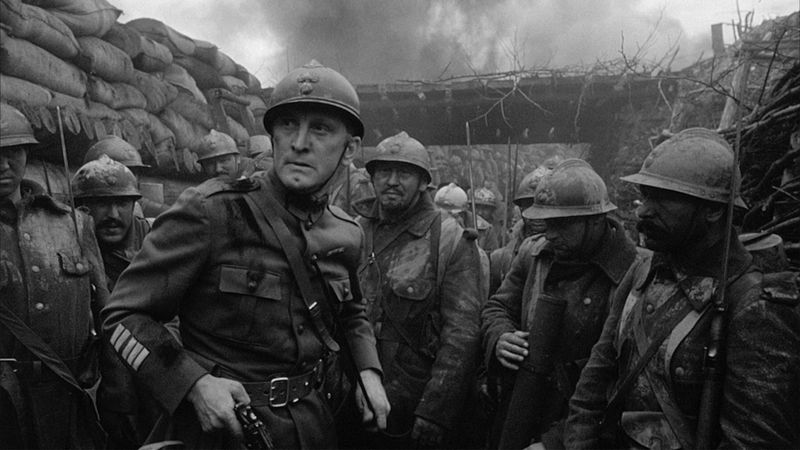
Stanley Kubrick’s ‘Paths of Glory’ is a scathing critique of war and its injustices, set during World War I. The film follows Colonel Dax (Kirk Douglas), who defends three soldiers unjustly accused of cowardice.
Kubrick’s direction highlights the absurdity and cruelty of military bureaucracy, challenging the morality of war itself. The trench warfare scenes are striking, capturing the despair and senselessness of conflict. ‘Paths of Glory’ remains a powerful anti-war statement, lauded for its unflinching portrayal of war’s darker aspects.
The Bridge on the River Kwai
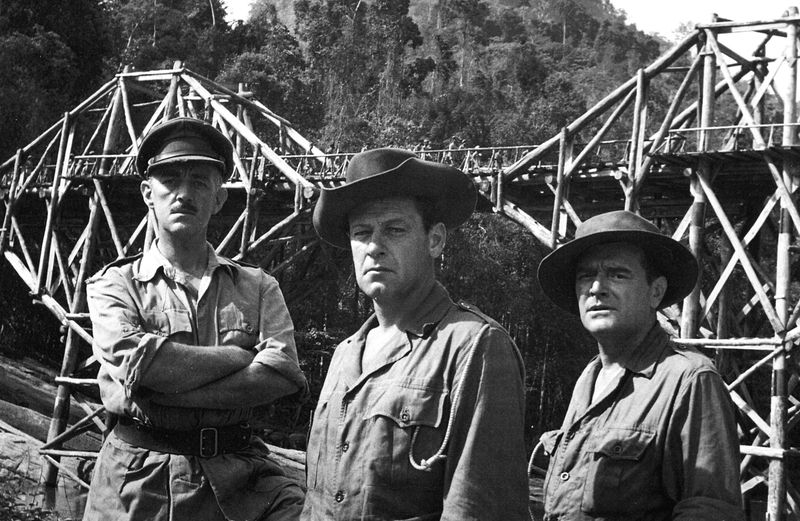
David Lean’s ‘The Bridge on the River Kwai’ is a gripping tale of survival and pride set in a World War II Japanese POW camp. The film focuses on British Colonel Nicholson (Alec Guinness) and his obsession with building a bridge, which becomes a symbol of defiance and honor.
Lean’s direction and captivating performances explore themes of duty, resilience, and the madness of war. This cinematic classic is renowned for its epic storytelling and unforgettable climax, offering a thought-provoking reflection on the complexities of wartime morality.
A Bridge Too Far
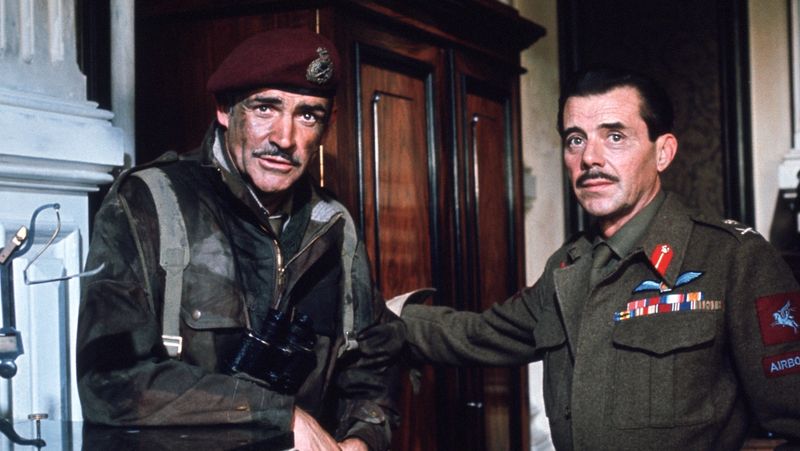
Richard Attenborough’s ‘A Bridge Too Far’ chronicles the ambitious yet ill-fated Operation Market Garden during World War II. The film showcases the Allied forces’ attempt to capture key bridges in the Netherlands, leading to one of the war’s largest airborne battles.
Featuring an all-star cast, the narrative captures the scale and complexity of the operation, highlighting both strategic brilliance and missteps. The film is praised for its detailed battle scenes and historical accuracy, providing a compelling look at one of WWII’s pivotal moments.
The Deer Hunter
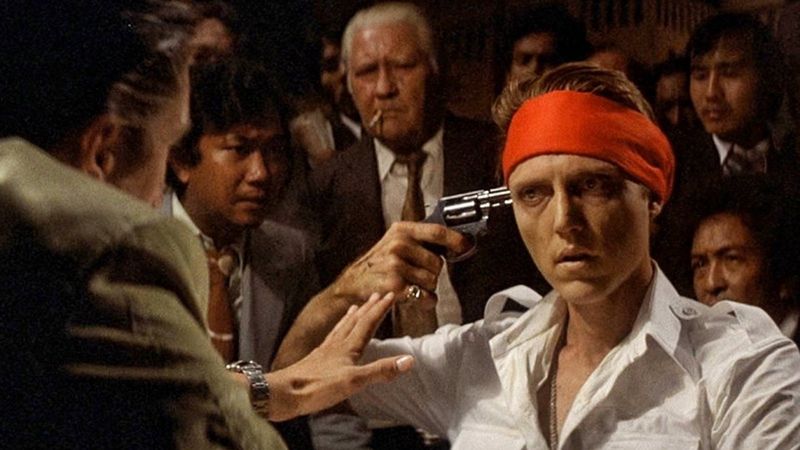
Michael Cimino’s ‘The Deer Hunter’ offers an emotional exploration of the Vietnam War’s impact on a group of friends from a small town. The film follows three steelworkers, Michael (Robert De Niro), Nick (Christopher Walken), and Steven (John Savage), as they endure the war’s horrors.
Cimino’s narrative shifts between their pre-war lives and the traumatic experiences in Vietnam, examining themes of friendship, loss, and survival. The film’s haunting Russian roulette scenes symbolize the randomness and brutality of war, leaving a profound impact on audiences.
Braveheart
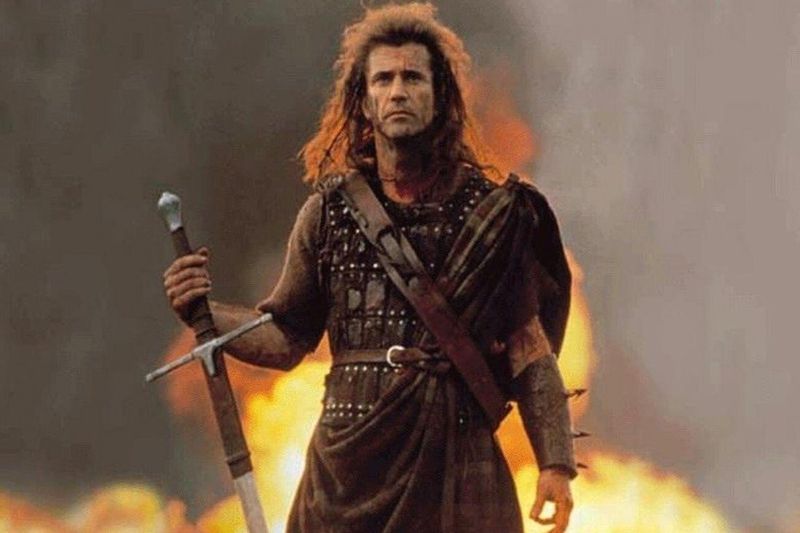
Mel Gibson’s ‘Braveheart’ is an epic tale of rebellion and freedom, chronicling the life of Scottish hero William Wallace. Set against the backdrop of the 13th-century Wars of Scottish Independence, the film showcases Wallace’s defiance against English rule.
Gibson’s direction and performance bring to life the themes of courage and sacrifice, making ‘Braveheart’ a stirring war epic. The film’s intense battle sequences and emotional depth resonate with audiences, celebrating the enduring spirit of freedom and resistance.
Glory
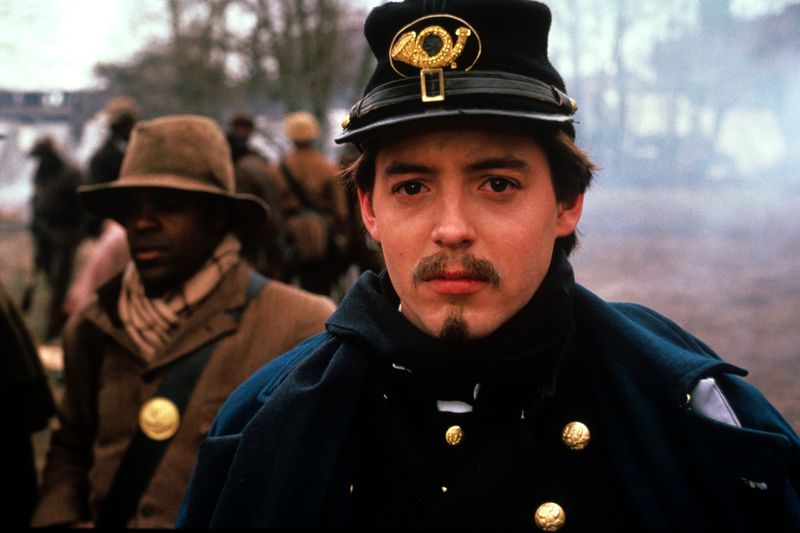
‘Glory’, directed by Edward Zwick, tells the story of the 54th Massachusetts Infantry Regiment, one of the first African American units in the Civil War. The film highlights the challenges faced by these brave soldiers and their young commander, Colonel Robert Gould Shaw (Matthew Broderick).
‘Glory’ explores themes of courage, equality, and sacrifice, offering a powerful portrayal of the fight for freedom and justice. The film’s compelling performances and stirring battle scenes underscore the regiment’s heroism, making it a landmark in historical cinema.
Schindler’s List
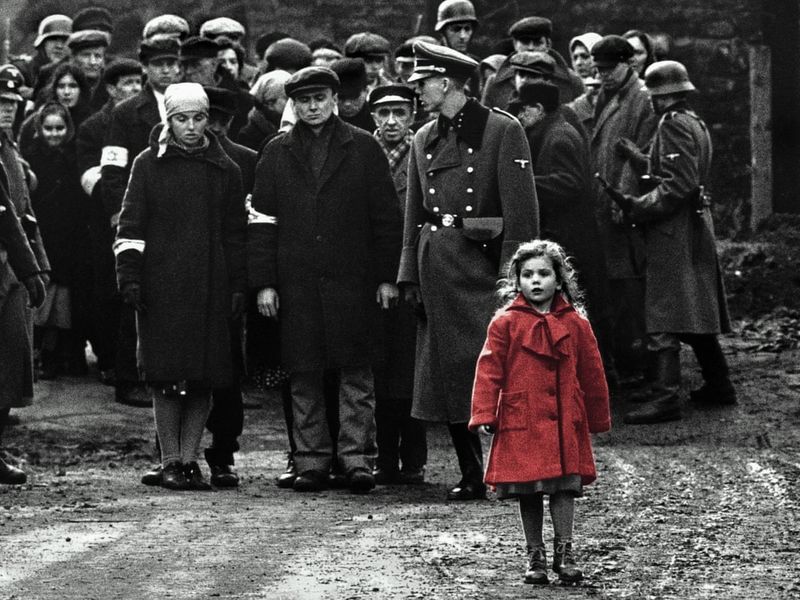
Steven Spielberg’s ‘Schindler’s List’ is a poignant and haunting depiction of the Holocaust, focusing on the true story of Oskar Schindler (Liam Neeson). Schindler, a German businessman, saves over a thousand Jews by employing them in his factories.
The film’s stark black-and-white cinematography and powerful storytelling capture the horror and humanity within one of history’s darkest periods. ‘Schindler’s List’ is acclaimed for its emotional depth and historical significance, serving as a powerful reminder of the Holocaust’s atrocities and the potential for compassion amidst despair.
The Hurt Locker
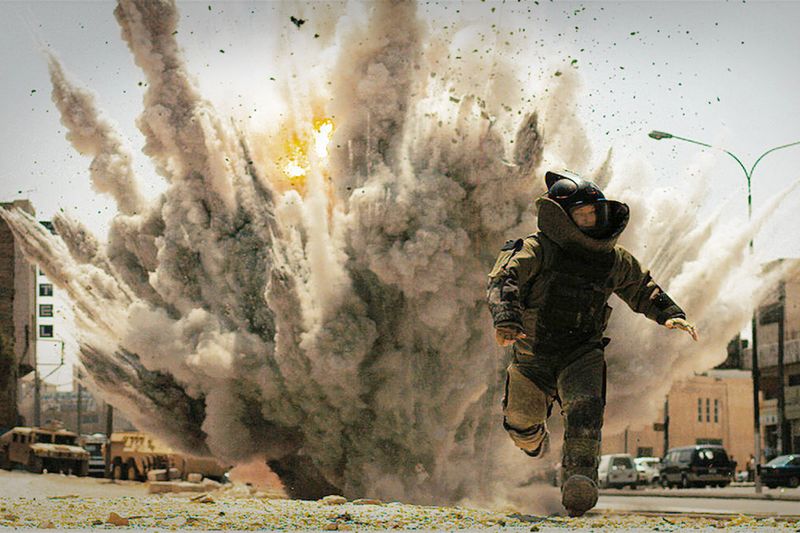
Kathryn Bigelow’s ‘The Hurt Locker’ provides an intense and gripping look at the Iraq War through the eyes of a bomb disposal team. The film follows Sergeant James (Jeremy Renner), whose reckless bravery and addiction to danger highlight the psychological toll of war.
Bigelow’s direction offers a tense and immersive experience, capturing the volatility and unpredictability of modern warfare. ‘The Hurt Locker’ is praised for its realistic portrayal of soldiers’ experiences and its exploration of the thin line between heroism and obsession.
Lawrence of Arabia
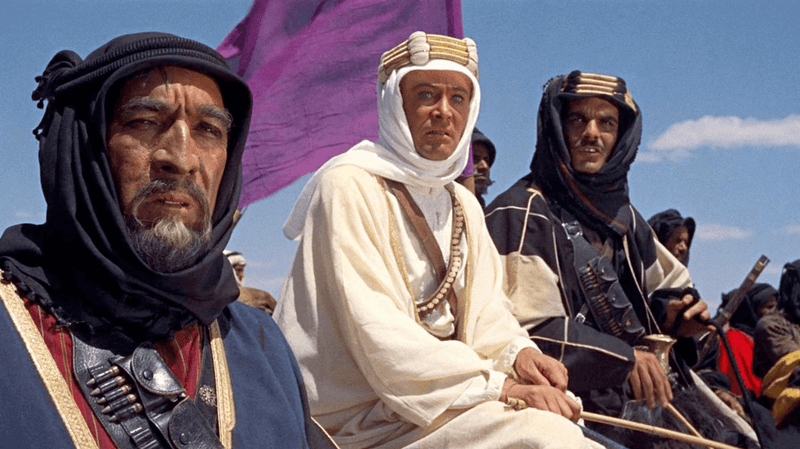
David Lean’s ‘Lawrence of Arabia’ is an epic portrayal of T.E. Lawrence’s adventures in the Arabian Peninsula during World War I. The film captures Lawrence’s complex character, his leadership, and the political intrigue of the Arab Revolt.
Lean’s sweeping cinematography and Peter O’Toole’s iconic performance create a cinematic masterpiece that explores themes of identity, loyalty, and the impact of war. ‘Lawrence of Arabia’ remains a landmark in film history, celebrated for its grandeur and storytelling.
Das Boot
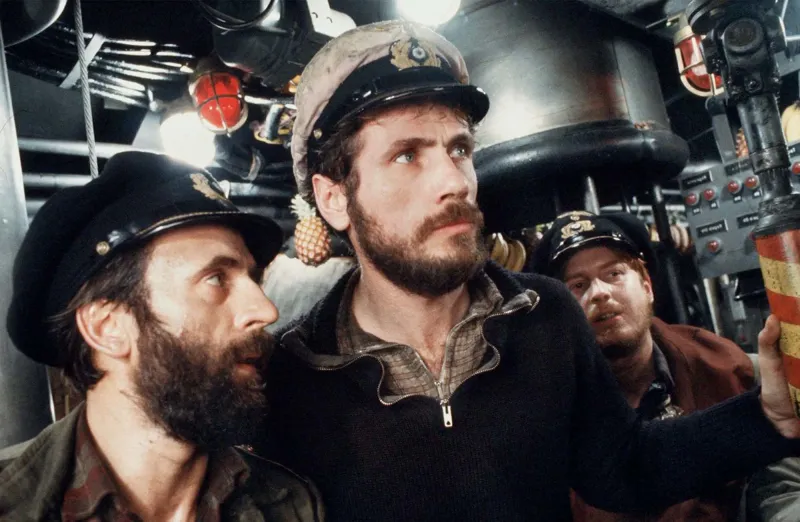
Wolfgang Petersen’s ‘Das Boot’ is a gripping depiction of life aboard a German U-boat during World War II. The film immerses viewers in the claustrophobic and tense environment of submarine warfare.
Petersen’s direction and the ensemble cast capture the sailors’ camaraderie, fear, and resilience as they face relentless enemy attacks. ‘Das Boot’ is praised for its authenticity and suspense, offering a unique perspective on the war at sea and the human spirit’s endurance.
Tora! Tora! Tora!
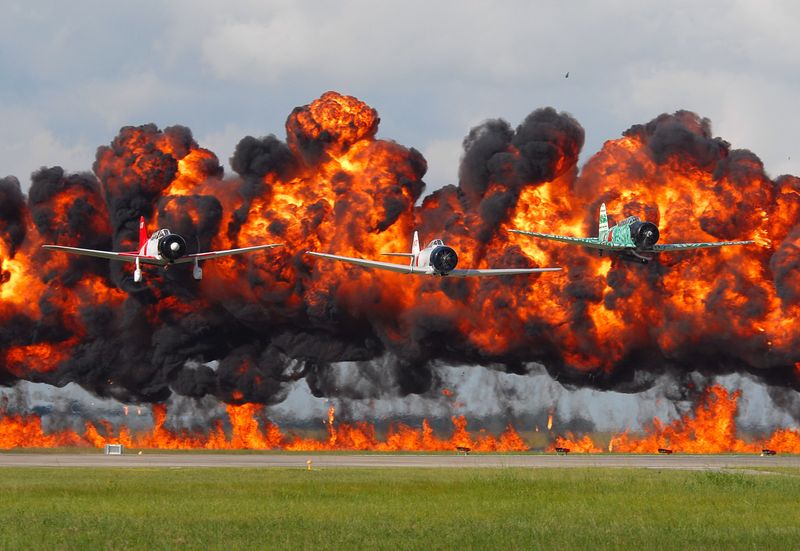
‘Tora! Tora! Tora!’ is a meticulous retelling of the events leading up to the attack on Pearl Harbor. The film presents both the American and Japanese perspectives, offering a balanced and detailed narrative.
Directed by Richard Fleischer, Toshio Masuda, and Kinji Fukasaku, the film is lauded for its historical accuracy and epic battle sequences. ‘Tora! Tora! Tora!’ provides an insightful look into one of World War II’s pivotal moments, emphasizing the importance of understanding both sides of the conflict.
We Were Soldiers
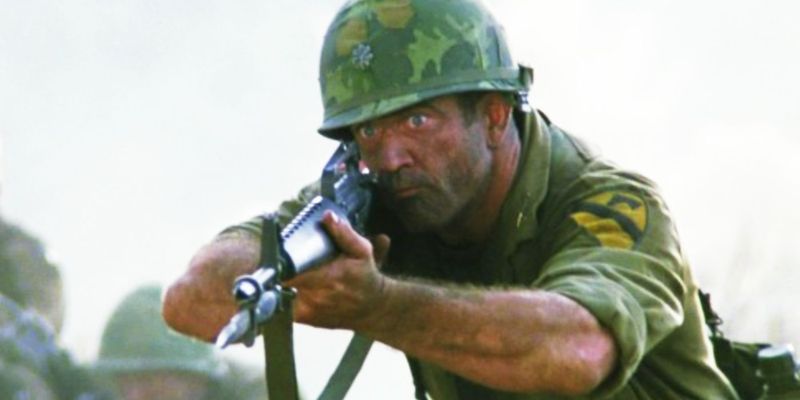
‘We Were Soldiers’, directed by Randall Wallace, chronicles the Battle of Ia Drang in Vietnam, focusing on Lieutenant Colonel Hal Moore (Mel Gibson) and his soldiers. The film highlights the bonds of brotherhood and the brutal realities of war.
With intense battle scenes and emotional depth, ‘We Were Soldiers’ pays tribute to the courage and sacrifice of those involved. The film’s attention to detail and compelling performances provide a powerful and humanizing perspective on the Vietnam War, making it a poignant addition to the war genre.
The Pianist
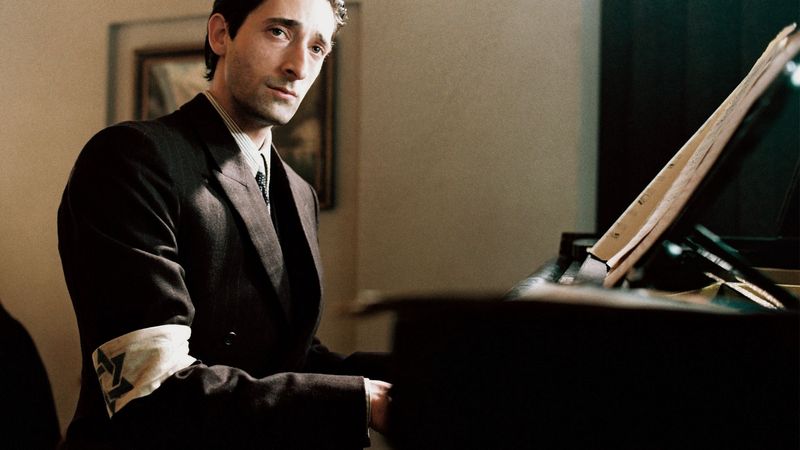
The Pianist, directed by Roman Polanski, is a harrowing yet inspiring tale of survival during World War II. The film tells the story of Władysław Szpilman, a Jewish pianist played by Adrien Brody, who struggles to stay alive amidst the horrors of the Holocaust.
Through the devastation of war, Szpilman’s music becomes a symbol of hope and resilience.
The film’s haunting portrayal of courage and the will to survive makes it a powerful testament to the human spirit.
